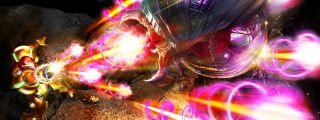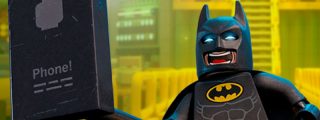There is a very human tendency to deify people once they have passed away. It makes sense; there is no point on speaking ill on someone who is no longer with us, and I think all of us would like to be remembered fondly. The world of gaming lost a huge figurehead this weekend in the form of Satoru Iwata, and even knowing the place that Nintendo holds in most gamers’ hearts I was still a little stunned to see the unanimous grief that fans showed for an executive whose decisions would often cause as much confusion and frustration as they caused glee.
Iwata in general was unique, he was the son of a politician, but had a passion for programming. Unlike many of his contemporaries who seemed to fall into the industry, he set out to become a game developer. Right out of college, he went to work HAL Laboratory a small Nintendo subsidiary where he made his name as a gifted programmer with games like Kirby and Earthbound. In 1993, HAL was on the verge of closure, and refusing offers for higher paying work, he stayed on to help stabilize its finances.
A programmer at heart, Satoru Iwata was very hands on during his time as President of HAL. In an Iwata Asks with Tsunekazu Ishihara and Shigeki Morimoto, they recall the nature of his work.
Right. (laughs) You decided to release Pokémon Stadium for the Nintendo 64 and the first task was to analyze the Pokémon Red and Pokémon Green battle logic and send it over to Miyamoto-san and his team. You’d normally expect there to be a specification document, but there was nothing of the sort…I’m so sorry! (laughs)No, no, it’s fine! (laughs) Studying the program for the Pokémon battle system was part of my job.I created that battle program and it really took a long time to put together. But when I heard that Iwata-san had been able to port it over in about a week and that it was already working… Well, I thought: “What kind of company president is this!?”(laughs)(laughter)I was saying things like: “Is that guy a programmer? Or is he the President?”(laughs)To be blunt, at the time I was more of a programmer than I was a company president. (laughs)(laughs) I was really taken aback that you could get to grips with such a complicated program in such a short space of time.
Still despite his talent some may have been surprised when Hiroshi Yamauchi named Iwata as his successor in 2002. Iwata was the first CEO of Nintendo not related to the original founding father, and a very young man by traditional Japanese business standards, only 42 in a country where it is common for people to become CEO’s in their 60’s.
Iwata’s tenure as CEO has some incredible highs tempered with some unfortunate lows. He was not a Midas that would turn everything he touched into gold. But his time as HAL showed, he was not risk averse and more than willing to earn less money in the short term to ensure the brand’s long term reputation and viability. In a world where publicly traded companies are judged on a quarter by quarter basis that is a rare commodity indeed.
Under his watch Nintendo launched the Wii, a console strategically designed to appeal to a wider variety of players rather than compete on sheer power with Sony and Microsoft. It was initially a runaway success, and even despite losing steam fairly early in the console cycle it would be wrong to call it anything less than a smash hit. More important in my opinion was the introduction of the Nintendo DS, which would revitalize the mobile market by replacing the Game Boy Advance, eventually going on to ensure Nintendo’s dominance in the hand held space even today.
He also made his share of missteps. Perhaps the biggest one relating to the launch of the Wii U, a system that even 3 years later is just barely justifying the purchase. Iwata has also overseen the creation and launch of Amiibo, a wonderful idea hamstrung by poor logistics management and a manufacturing strategy that makes absolutely no sense to me.
He also contributed to the company’s policy of waiting too long to embrace some of the positives of internet connectivity such as online multiplayer, which was atrocious on the Wii, and DLC, which Nintendo also only recently began to dabble with. It could be argued that waiting to do these things however, has meant that Nintendo is generally able to do them right the first time. The DLC in Mario Kart and in Super Smash Bros is superb, and they do not feel like the exploitative offerings we’ve been given by other developers.
And maybe that’s why there is such a reaction to his passing. For all their mistakes, when Nintendo did something wrong it always felt like they were taking a risk to bring something they believed in to the customer. Whether that is the case or not can be argued, but that was the perception Iwata’s Nintendo gave off. This was supported by the team’s funny and sometimes surreal shows in the Nintendo Directs. It showed a company that wanted to both bring fun to their consumers and have it themselves.
In the hours since his passing was announced, there has been a lot of speculation as to what Iwata’s legacy is, talking about the company direction, games produced, Nintendo’s apparent foray into the mobile game industry, and other of the long list of accomplishments Iwata had in his 55 years of life. But when I think of the legacy of Nintendo in general, I think of my kids falling in love with the same worlds and characters I fell in love with at their age, and realize that helping to ensure that kind of longevity and cross generational appeal is the biggest accomplishment any executive could hope to have.







